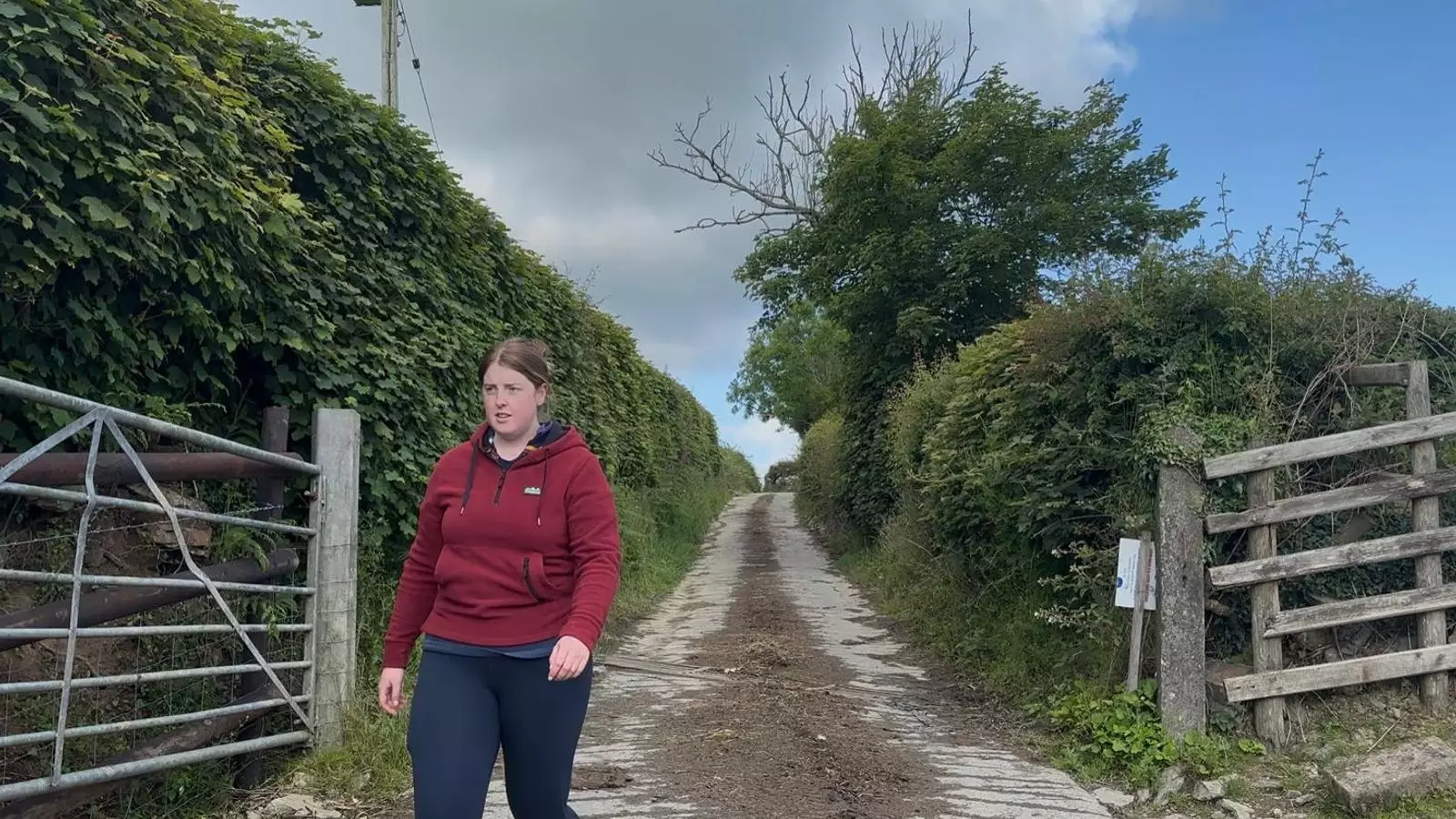Wales, with its breathtaking landscapes and tight-knit rural communities, recently faced a concerning revelation: rural crime is at its highest level in over ten years. According to a report from the insurance provider NFU Mutual, the cost of such crime reached approximately £2.8 million last year, marking an alarming 18% increase from the previous year. As the only region in the UK experiencing such a rise, the implications for farmers and rural residents are daunting.
For farmers like Caryl Davies, the theft of essential equipment has transformed their lives into a state of anxiety and insecurity. At just 21, Caryl manages a farm in Pembrokeshire where a stolen quad bike has changed everything. The incident not only stripped them of a vital tool required for their daily operations but also instigated feelings of vulnerability in what was once considered a safe haven. Caryl highlighted a crucial point—this isn’t just about economic loss; it’s about a deep-seated feeling of safety being ripped away from a family that relies on the land for their livelihood.
The Inequitable Cost of Crime
The staggering cost of replacement items, such as the £10,000 quad bike that Caryl needs, represents only a fraction of the emotional and operational toll inflicted on these families. As if farming wasn’t challenging enough due to fluctuating market prices and harsh weather conditions, the looming threat of theft compounds the struggle. For many farmers, the need to invest in security measures such as enhanced CCTV systems further strains their already tight budgets. Caryl’s experience encapsulates the essence of the modern farming crisis: the constant pressure to safeguard their property while trying to maintain productivity.
The conversation highlights a broader issue that is not just financial but entwines the very fabric of rural life in Wales. Theft and vandalism not only affect income; they fray community ties and erode the sense of collective security that is integral to rural living. The increasing necessity for investment in protective measures suggests a creeping erosion of trust, leading to an isolating climate of fear.
The Impact on Livelihoods
Caryl’s situation is not unique. James Bourne, a farmer from Pontypool, shared his painful story of over 200 sheep lost to theft over the past four years. This loss reverberates beyond mere numbers; it leads to tangible economic hardship for a family already struggling in a volatile agricultural market. James’ plight illustrates a terrifying trend—criminals are not only targeting expensive equipment but also plundering livestock, which forms the backbone of farming operations in Wales.
The loss of sheep amounts to far more than financial degradation; it undermines the hard work and dedication that farmers pour into their livelihoods. As James mentions, any profits they could have generated are being siphoned away by these ruthless acts of theft, highlighting how crime does not merely inflict pain but has the power to dismantle families’ hopes and aspirations.
The Tentacles of Organized Crime
The situation demands urgent attention, particularly in light of commentary from Andrew Chalk of NFU Mutual. His insights reveal a disturbing trend: organized crime is evolving, utilizing tools such as drones to survey rural properties in search of vulnerable targets. This innovation in criminal tactics shines a harsh light on how far criminals will go to exploit hardworking individuals. The focus on rural areas should drive home a vital truth—law enforcement must work collectively, not only to address these crimes but to prevent them.
The police forces throughout Wales are recognizing the stakes involved. With the introduction of technology like DNA asset-marking kits, there is a meaningful push towards empowering farmers to safeguard their assets efficiently. However, these measures must be coupled with on-the-ground support and increased presence in rural areas. Are we willing to accept a system where farmers must fend for themselves against organized crime?
A Collective Call to Action
The rising tide of rural crime in Wales is not simply a statistic; it is an urgent crisis that threatens to alienate agricultural communities and unravel the social fabric of rural life. The emotional and financial repercussions faced by farmers symbolize a deep-rooted challenge that requires immediate and comprehensive policy responses. As a society, we cannot allow rural communities to suffer in silence.
For farmers like Caryl and James, the stakes are profoundly personal, reminding us that rural crime wields the power to alter lives drastically. The sentiment in these communities is clear: they need support, understanding, and effective measures to combat crime that threatens their way of life. It is time to galvanize support for policies that fund not just protective measures but foster strong, sustaining communities in rural Wales. The fight against rural crime is not just about protecting property; it is about safeguarding the spirit of rural life itself.

